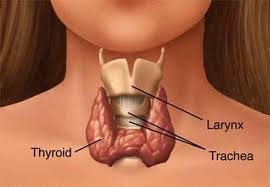Disorders
- Anorexia Nervosa
- Binge Eating Disorder
- Bitot's Spots
- Bulimia Nervosa
- Macrocytic Anemia
- Megaloblastic Anemia
- Night Blindness
- Peptic Ulcer
- Prophylaxis
- Rhodopsin
- Rickets Disease
- Scurvy Disease
- Wilson’s Disease
- Xerophthalmia
- Hemochromatosis
- Siderosis
- Thalassemia
- Sideroblastic Anemia
- Porphyria Cutanea Tarda
- Sickle Cell Anemia
- Kwashiorkor
- Menkes Disease
- Neutropenia
- Keratomalacia
- Beriberi
- Pellagra
- Macrocytic
- Megaloblastic
- Pernicious Anemia
- Scurvy
- Rickets
- Osteomalacia
- Abetalipoproteinemia
- Muscular Dystrophy
- Haemolytic Anaemia
- Cholestatic Constipation
- Pretibial Myxedema
- Cretinism Diesease
- Hypothyroidism
- Hypothyroidism
- Feline Hyperthyroidism
- Graves Disease
- Plummer’s Disease
- Thyrotoxicosis
- Acrodermatitis Enteropathica
- Congenital Hypothyroidism
- Hashimoto’s Thyroiditis
- Hyperthyroidism
- Keshan Disease
- Lose Weight with Hypothyroidism
- Metal Fume Fever
- Postpartum Thyroiditis
- Thyroid Storm
- Subclinical Hypothyroidism
Thyroid Relief Sub Clinical Hypothyroidism: Causes and Treatment
Millions of people suffer from hypothyroidism and are completely unaware of it. Many of these people exhibit classic symptoms such as fatigue, inability to lose weight, and depression. But those that do not may have a condition known as subclinical hypothyroidism in which diagnostic tests show thyroid hormone abnormalities, yet no symptoms manifest themselves.
What is Hypothyroidism?

Hypothyroidism is the state which is caused when the thyroid gland produces an insufficient amount of thyroid hormone. The thyroid is one of the larger hormonal glands in the body. It is located in the neck and is responsible for the production of hormones which regulate the metabolism in the body and affect the growth and rate of function of many other systems in the body.
Who Suffers?
Women, in all age groups, are more likely than men to suffer from subclinical hypothyroidism. Up until the age of 60 about 8 percent of women and only 4 percent of men carry the condition. Though after the age of 60, the numbers about double for both age groups with 15 percent of women compared to 8 percent of men carrying the condition.
It is especially important for women who think they may have the condition to be treated accurately. As Elizabeth Vliet, M.D., points out in her bestselling book Screaming to be Heard: Hormonal Connections Women Suspect… and Doctors Ignore, it is common that women concerned about the condition are told their thyroid is functioning normally, when in fact, the full set of thyroid tests were never completed.
Causes of subclinical hypothyroidism
One reason for the increase rates of subclinical hypothyroidism in older people may be a direct result of the causes of the condition. Hypothyroidism eventually occurs in up to 25 percent of all individuals treated with surgery or antithyroid drugs. And although thyroid failure is most common after radioactive iodine treatments, these are not the only causes of the condition. Other causes may include:
- Treated Graves Disease
- Head and neck surgery
- Iodine deficiency
- Medications, including lithium, iodine and Cordarone

These are the most common, but not all of the possible causes of hypothyroidism. It is important to be tested for the condition if any of these causes are met.
Question of Treatment of Subclinical Hypothyroidism
There is debate among medical doctors as to whether subclinical hypothyroidism needs to be treated at all. Some doctors argue that it is not necessary to treat patients with the condition. But most doctors agree that treatment is the best option. Subclinical hypothyroidism, if left untreated can begin to manifest symptoms of full-fledged hypothyroidism, in which more urgent action would be necessary. Early treatment of the condition can also prevent the growth of a goiter and may help to eliminate symptoms.
Risks of Not Treating Subclinical Hypothyroidism
If left untreated, the risks of subclinical hypothyroidism can result in the increase other, more dangerous conditions. These increased risks include:
- Heart attack
- Atherosclerosis
- Elevated cholesterol and high triglycerides
- Depression anxiety and panic attacks
- Miscarriage
- Developmental problems in new born infants

Treatment of Subclinical Hypothyroidism
Treatment of subclinical hypothyroidism is similar to the treatment of hypothyroidism. In both instances, the synthetic hormone levothyroxine is administered to the patient. Levothyroxine is a synthetic form of thyroxine, the hormone produced in the thyroid. When administered the hormone is metabolized much slower than the naturally occurring thyroid hormone resulting in a more balanced thyroid activity. The drug is generally administered daily and about one hour before a patience meal to maximize is absorption and effectiveness. Patients with subclinical hypothyroidism are treated with a much lower dosage of the synthetic compound than those with full-fledged hypothyroidism.
If subclinical hypothyroidism is left untreated long enough, the result could be the surgical removal of parts of the thyroid. It is usually done in a way which enables the hormone to retain its ability to be reproduced, yet some people will need hormone supplementation after the surgery.
Conclusion of Subclinical Hypothyroidism
Although screening may eventually be performed among certain populations, especially women and the elderly, as of today, universal screening for subclinical hypothyroidism is not routinely performed. Unless such symptoms as depression or fatigue are brought to the attention of one’s doctor, there may be no reason for the doctor to subject the patient to screening. It is up to the individual to educate themselves and decide if they fall into one of the high risk categories, and then to take appropriate precautions.
Hope this article will provide you information about subclinical hypothyroidism.
